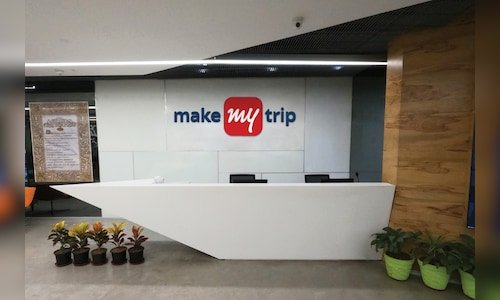AI in Travel
AI Goes ‘Mainstream’ in Travel Planning, New Report Finds

Consumer confidence surrounding the use of AI in the travel planning and booking process has reached new levels and by some accounts is going fully mainstream.
A new report from Phocuswright shows that one-third of U.S. travelers now use AI tools to either plan or experience trips – a development the report’s authors call a “seismic shift in traveler behavior.”
“What began as experimentation with ChatGPT, Perplexity or Google Gemini
is now a core component of trip planning for millions,” say the report.
But even more eye-opening, up to 37 percent of travelers say they now “trust GenAi’s recommendations enough to act on them.”
Additionally, just over 50 percent of U.S. travelers have at least tried
GenAI or are actively using it (for any topic, not just travel).
These statistics are based on traveler surveys that took place across the United States, UK, France and Germany between March 31 and April 25, 2025.
Usage by country
GenAI usage in Europe lags that of the U.S., partly due to regulations in the EU. The U.S. leads the pack by far of all countries studied, with 33 percent of travelers using Generative AI in the travel process, compared to 22 percent in the U.K., 19 precent in France and 15 percent in Germany.
Travelers across all countries measured registered a 3- to 4- point increase in usage of GenAI for trip planning from 2024 to 2025.
Booking travel
The new report also looks at how travelers are using AI with regard to the travel process. Between one-quarter and one-third of travelers across countries are already interested in booking travel within a GenAI platform or letting an AI assistant book for them.
“This will be facilitated by the integration of shopping and payment within GenAI environments,” the report explains.
Moreover, widespread adoption of digital forms of ID is expected to further smooth the transition to this type of behavior.
Planning travel
When it comes to using AI to completely plan a trip, usage by country is a mixed bag, with the U.S. no longer in the lead.
For instance, 19 percent of U.S. travelers have used GenAI to plan at least one trip, compared to 30 percent of travelers in France. The UK is tied with the U.S. in this category at 19 percent as well, while in Germany the figure is 16 percent of travelers having used AI to plan at least one trip.
As for continued use of AI in trip planning, 19 percent of U.S. travelers say they have used AI to plan at least two trips, while 14 percent of UK travelers said the same thing, followed by 13 percent in Germany and 11 percent in France.
Looking toward the future
The Phocuswright report predicts that in the coming months and years the travel industry should expect to see “many more developments that will change traveler behavior.”
“ChatGPT will gain popularity, travel company offerings will mature, and Google will roll0out Ai-powered commerce integrated into the search environment and in products commonly used in-destination such as Google Maps,” says the report. “With these advances, travelers will happily follow.”
For the latest travel news, updates and deals, subscribe to the daily TravelPulse newsletter.
Topics From This Article to Explore
AI in Travel
Is that trip worth It? SAP Concur uses AI to find out

In the new hybrid working reality, organisations are adjusting their approach to travel policies and there is an increasing disconnect between boardrooms and business travellers. There is an overwhelming sense among those people who work for an organisation and travel for business or as part of a company’s travel footprint that travelling for business is important to collaboration and deal-making; however, many CFOs, including leaders in procurement, safety and security and other stakeholders, are more cautious, generally viewing travel as replaceable, riskier and audit exceptions.
In an exclusive interview with Dataquest, Brett Wheeldon, Vice President of Solution Consulting for APAC at SAP Concur, explains how the organisation is using Artificial Intelligence (AI), analytics and automation technology to help organisations identify metrics that allow the organisation to actually measure and quantify the true ROI of business travel resulting in closing the perception gap, enabling cost control flexibility that connects to the sustainability and culture goals of organisations.
The insights referenced in this conversation derive from SAP Concur’s recent global survey of finance leaders, travel managers, and employees that explored shifting views regarding business travel in the current hybrid work environment. The findings expose critical disconnects around travel value, budgeting priorities, and sustainability expectations — especially important for Indian organizations that want to optimize their travel programs.
The survey reveals that 99% of employees see business travel as essential, yet 43% of CFOs believe most trips can be replaced by virtual meetings. How does SAP Concur using AI and analytics to help organizations quantify the ROI of in-person travel versus digital alternatives?
At SAP Concur, we have established a gaping disparity between CFO views and employee feelings about business travel. As many CFOs opt for virtual meetings, 99% of employees still value face-to-face interactions. We support organizations using AI and advanced analytics to capture the true ROI of in-person travel; we take raw travel data and integrate it with CRM data to recognize sales outcomes. This allows for the ability to make better decisions — when, why, and who should travel; as well as, when a handshake has a greater impact than a screen share.
With 80% of business travelers willing to hit the road and 45% of CFOs worried about travel reluctance, how can intelligent platforms like SAP Concur help enterprises assess and act on employee travel sentiment at scale?
With a clear gap between employee willingness to travel and CFO concerns about travel reluctance, SAP Concur bridges this divide through sentiment-aware travel intelligence. By analyzing real-time feedback, booking patterns, and opt-out behaviors, we help organizations capture employee sentiment on a scale. Whether the hesitation stems from safety concerns, burnout, or logistical challenges, this data is surfaced in actionable dashboards for CFOs, HR leaders, and travel managers.
Powered by AI, the platform flags at-risk traveler groups and recommends targeted interventions—from policy adjustments to wellness initiatives—helping companies sustain business travel momentum while prioritizing employee well-being.
The driver behind the CFO reluctance I believe comes from the lack of traveler risk management capabilities, this can create significant organisational exposure, your travel management solution must be able to tell you who is asking to travel, who is travelling, where they are and have the ability to connect with them instantly, and of course those travelers be able to reach for support seamlessly.
There’s a clear disconnect in budget expectations—most employees expect cuts, while CFOs anticipate growth. How does SAP Concur leverage real-time data and predictive insights to align travel budget planning across roles?
While many employees anticipate reductions in travel budgets, expecting tighter controls or fewer trips, 90% of CFOs project stability or growth. This disconnect can lead to misaligned planning and missed opportunities. SAP Concur bridges this gap through real-time data and predictive insights, bringing transparency to travel budgeting. By tracking spending against ROI and forecasting needs by department or role, our platform empowers CFOs and travel managers to align expectations and manage costs proactively.
When I talk to customers the most typical practice is arbitrary travel freezes simply because there is not link between travel and where the best investment of the resources should be. Something that resonates with CFO’s is the visibility of expenses from pre-spending through to payment.
With a formal request solution in place that tracks through the entire spending cycle, Finance teams can tune spending on the fly and empower cost center owners to act as the company requires. It’s a case of being able to ratchet up or down with science. Of course, another salient point is the ability to apply course correction style spend policies in real-time like nature.
The survey shows conflicting perceptions of influence—69% of CFOs say they make the key travel decisions, while travelers and travel managers feel sidelined. Can SAP Concur’s role-based workflows and collaborative dashboards help close this gap?
At SAP Concur, we believe in bringing clarity and collaboration to processes. Our platform enables role-based workflows, where input from all stakeholders — finance, HR, travel, and employees — is built into the approval and policy-setting process. With collaborative dashboards, decisions are no longer made in isolation. Everyone can see the rationale behind a travel policy, understand the cost implications, and share accountability. It’s not just about hierarchy — it’s about making the best decision for business, backed by data.
One of the key metrics we are asked to help customers know more about is around compliance, this is often well understated. We see no matter how we cut the data 23% of all transactions falling outside of an orgnanisations spend policy. When you look further into this there are savings in the range of 5%-15% available, this is where live audit rules, workflows and especially AI performing auditing functions really shine, large volumes of data can be processed very quickly to drive out value resource wastage.
With 79% of employees saying important trips are being curtailed due to cost, how does SAP Concur use automation or AI-powered spend optimization to help organizations prioritize high-impact travel while controlling expenses?
With 79% of employees reporting that vital trips are being canceled due to cost, companies face the risk of missing key business opportunities — whether it’s closing deals, strengthening partnerships, or retaining customers. SAP Concur helps address this challenge with AI-powered spend optimization, enabling organizations to make smarter, data-backed decisions about travel.
Our platform analyzes both historical patterns and real-time spend data to evaluate which trips deliver the highest business value. It then ranks travel based on metrics such as revenue potential, strategic importance, customer engagement, or urgency — ensuring that high-impact trips get prioritized even in times of financial constraint.
This intelligent guidance helps travel managers and finance teams allocate resources more effectively, striking the right balance between cost control and business growth. Defining what is high impact is also critical, from here the ability to add that criteria into your organisations travel request solution will significantly help with classification and approving of travel that is aligned to the goals of the business.
Built-in policy compliance further ensures that every travel decision aligns with organizational goals, allowing businesses to move from reactive cutbacks to proactive, value-driven planning.
As sustainability gains ground, is SAP Concur enabling Indian companies to track the carbon footprint of their business travel and make greener, data-backed decisions?
Sustainability isn’t just a checkbox for us — it’s a strategic pillar. Especially in markets like India, where 99% of employees are willing to personally invest in better travel, we’re empowering organizations to track, manage, and reduce their carbon impact. SAP Concur’s platform includes carbon tracking capabilities, aligned with global and regional standards. We help Indian enterprises measure emissions per trip, compare greener travel options, and integrate sustainability into policy enforcement in a structured, impactful way. With intelligent reporting tools that map travel activity to ESG goals, our platform empowers companies to make data-backed decisions that are both environmentally responsible and strategically aligned with their business objectives.
With SAP Concur travel, organisations can prioritise sustainability as they desire and present the potential travel to the traveller aligned to the green goals and policies of the business, this allows informed choices to be made.
At SAP Concur, we’re not just facilitating travel — we’re shaping the future of how companies navigate mobility, manage costs, care for their people, and protect the planet. Business travel isn’t going away — it’s getting smarter. And we’re proud to lead that evolution.
AI in Travel
Travel: AI Outshines Colleagues in Travel Planning

Overview: The Growing Role of AI in Travel Planning
A new trend is emerging in the travel industry: travelers are turning to AI for advice and planning, leaving traditional sources like colleagues and influencers behind. According to a recent survey by Booking.com, 67% of travelers now use AI tools when planning trips, with the role of AI becoming increasingly significant in shaping travel experiences across the globe. While AI’s dominance is rising, trust in these tools varies by region.
Why This Trend Is Gaining Popularity:
-
Global Shift Toward Digital Tools: The growing reliance on AI is part of a broader trend where digital and automated tools are increasingly trusted over human sources for advice and recommendations.
-
Increased Accessibility: AI tools provide easily accessible, personalized, and often real-time suggestions, making them more appealing to travelers looking for convenience and efficiency.
-
Desire for New Experiences: Travelers are increasingly seeking authentic, unique travel experiences, and AI’s ability to offer personalized recommendations, including off-the-beaten-path destinations, is gaining traction.
Detailed Findings:
-
AI Outpaces Colleagues and Influencers: AI tools have surpassed work colleagues (19%) and influencers (14%) as trusted sources of travel advice.
-
Regional Trust Disparities: Trust in AI varies globally. Latin America and Asia-Pacific are the most trusting regions (51% and 38% respectively), while North America and Europe show more skepticism, with trust levels at 30% and 28%.
-
AI’s Growing Influence: Travelers are using AI to avoid overcrowded destinations (71%), find experiences that positively impact local communities (60%), and discover new places to visit (38%).
Key Success Factors of the Trend:
-
Personalized Travel Recommendations: AI’s ability to offer tailored travel suggestions, including hidden gems and niche experiences, makes it a valuable resource for modern travelers.
-
Efficiency and Convenience: AI provides immediate recommendations, which saves time and streamlines the travel planning process.
-
Regional Variability in Trust: While AI is gaining trust in many regions, brands need to account for local cultural differences in attitudes toward AI when developing and marketing their tools.
Key Takeaway:
As AI takes a central role in travel planning, it is reshaping the industry. While AI tools are growing in popularity, brands must address concerns about trust, inclusivity, and personalization to ensure they meet the diverse needs of travelers globally.
Main Trend: AI’s Growing Influence in Travel
The main trend is the increasing reliance on AI tools for travel planning, surpassing traditional sources of advice like colleagues and influencers. As AI’s role expands, it is shaping the future of how we travel and explore new destinations.
Description of the Trend:
AI is becoming an indispensable tool in travel planning, helping travelers discover new destinations, avoid overcrowded spots, and plan sustainable trips. However, regional trust disparities show that AI’s acceptance is still a work in progress.
Key Characteristics of the Trend:
-
Global Growth of AI Use: Across different regions, more travelers are turning to AI for planning trips, with Latin America and Asia-Pacific leading the way in trust.
-
Personalization and Customization: AI allows for highly personalized travel recommendations, which appeals to travelers seeking unique experiences.
-
Concerns Over Bias and Inclusivity: While AI is gaining popularity, travelers are concerned about its potential biases and its ability to cater to budget-conscious travelers.
Market and Cultural Signals Supporting the Trend:
-
AI Integration in Other Industries: The rise of AI in various sectors, such as e-commerce, entertainment, and customer service, has made travelers more comfortable with using AI in travel planning.
-
Shift Toward Sustainable Travel: Travelers increasingly want to make responsible travel choices, and AI tools are helping them identify sustainable travel options and local experiences that benefit communities.
What Is Consumer Motivation?
-
Desire for Authentic, Personalized Travel: Consumers are motivated by the desire for unique, off-the-beaten-path travel experiences, which AI can help them discover.
-
Convenience and Time Savings: Travelers want to streamline their planning process, and AI’s ability to provide instant suggestions makes it an attractive option.
What Is Motivation Beyond the Trend?
-
Skepticism and Caution: While many are embracing AI, there is still skepticism, particularly in regions like North America and Europe, where trust in AI for travel planning is lower. Consumers may need more reassurance about AI’s accuracy, transparency, and fairness.
Descriptions of Consumers: Who Are They? What Drives Them?
-
Consumer Summary:Travelers seeking more efficient, personalized, and sustainable experiences are increasingly turning to AI. They are motivated by convenience, the desire for unique experiences, and the potential of AI to provide tailored recommendations that match their preferences and values.
-
Demographics and Lifestyles:
-
Who Are They: Tech-savvy travelers, including Gen Z and Millennials, who are comfortable with digital tools and seek personalized travel experiences.
-
What is Their Age: Primarily between 18 and 40 years old, with a strong emphasis on younger generations.
-
What is Their Gender: Diverse across all genders.
-
What is Their Income: Middle to upper-middle class, with disposable income for travel.
-
Lifestyle: These consumers are active travelers who value authentic experiences, are eco-conscious, and embrace technology in their daily lives.
-
How the Trend Is Changing Consumer Behavior:
-
Increased Reliance on Technology: Consumers are increasingly relying on AI and digital tools for all aspects of their travel planning, signaling a shift from traditional methods to high-tech solutions.
-
Emphasis on Unique Experiences: AI is helping travelers seek out new destinations and experiences that are different from mainstream tourist spots, aligning with the growing desire for authenticity.
Implications Across the Ecosystem
-
For Consumers: AI is empowering consumers by offering them more personalized, efficient, and sustainable travel options.
-
For Brands and CPGs: Travel brands should invest in AI-driven platforms to meet the increasing demand for tailored travel experiences. They must also ensure that their AI tools are ethical, transparent, and inclusive.
-
For Retailers: Retailers in the travel industry, including airlines and hotels, should integrate AI into their services to cater to travelers’ expectations for convenience and personalization.
Strategic Forecast: What’s Next for AI in Travel?
-
More Personalized Travel: As AI technology continues to evolve, it will likely become even more effective at tailoring travel suggestions and itineraries based on individual preferences.
-
Expansion of AI-Powered Travel Platforms: AI-powered travel platforms will continue to grow, offering increasingly sophisticated and immersive travel planning experiences.
-
Greater Focus on Inclusivity and Ethics: To build trust with consumers, brands must ensure that their AI systems are fair, transparent, and inclusive, addressing concerns about bias.
Areas of Innovation (Implied by Trend)
-
AI-Driven Sustainability: AI could play a key role in helping travelers make more sustainable choices by offering suggestions for eco-friendly accommodations, activities, and transport.
-
Local Experience Recommendations: AI could increasingly focus on providing recommendations for local experiences that benefit communities, rather than just mainstream tourist destinations.
-
Ethical AI Frameworks: As AI becomes a staple in travel planning, more companies will need to develop ethical frameworks to ensure their algorithms don’t perpetuate biases.
-
Budget-Friendly AI Solutions: AI can be used to identify cost-effective travel options, addressing concerns that AI could neglect budget-conscious travelers.
-
Interactive Travel Planning Tools: AI could evolve into even more interactive travel tools, allowing users to plan and modify their trips in real-time as new options or recommendations become available.
Summary of Trends
-
Core Consumer Trend: The Rise of AI in Travel Planning: More travelers are turning to AI for personalized, efficient, and sustainable trip planning.
-
Core Social Trend: AI’s Growing Role in Everyday Life: AI continues to expand its influence across various industries, including travel, as consumers embrace it for both convenience and customization.
-
Core Strategy to Follow Trend: Invest in AI-Driven Solutions: Travel brands and platforms should prioritize AI-driven solutions that cater to consumers’ growing demand for personalized and sustainable travel options.
-
Core Industry Trend: The Intersection of AI and Travel: The travel industry is increasingly incorporating AI tools to enhance personalization, efficiency, and sustainability in planning.
-
Core Consumer Motivation: Personalization and Efficiency: Consumers are motivated by the desire for unique, tailored experiences and the convenience of technology-driven travel solutions.
Final Thought: Embracing AI’s Future in Travel
The growing reliance on AI for travel planning signals a major shift in the industry. As travelers embrace technology for more personalized and sustainable experiences, brands must adapt by offering AI-driven tools that are transparent, ethical, and inclusive, ensuring they meet the diverse needs of global consumers.
AI in Travel
Myra, MakeMyTrip’s new AI assistant, aims to simplify holiday planning in India

The platform currently works in Hindi and English, with plans to add more regional languages to reach deeper into Bharat. Launched in beta, Myra has already seen over 10,000 users, with feedback being used to make conversations more relevant and personalised. Rajesh Magow, Co-founder & CEO of MakeMyTrip, said users range from first-timers to repeat customers, and the focus is on refining context-aware responses for smoother planning.
MakeMyTrip is customising global large language models in-house using its travel content, while integrating them with an agentic framework to deliver a seamless experience.
Alongside Myra, the company has rolled out a global tours and attractions platform with over two lakh activities in 1,100 cities across 130 countries, all priced in Indian rupees. Myra will soon allow travellers to generate itineraries, browse content, and book flights, hotels, and tours in one go.
Despite disruptions in Q1 FY26, the company maintained profitability through disciplined P&L management. It also raised over $2.6 billion via equity and convertible notes to buy back a stake from Trip.com Group in what Magow called a purely financial restructuring. From AI-led trip planning to global expansion and strategic capital moves, MakeMyTrip is betting on technology and scale to shape the future of Indian travel.
Watch the accompanying video for the entire conversation.
-

 Brand Stories3 weeks ago
Brand Stories3 weeks agoBloom Hotels: A Modern Vision of Hospitality Redefining Travel
-

 Brand Stories2 weeks ago
Brand Stories2 weeks agoCheQin.ai sets a new standard for hotel booking with its AI capabilities: empowering travellers to bargain, choose the best, and book with clarity.
-

 Destinations & Things To Do3 weeks ago
Destinations & Things To Do3 weeks agoUntouched Destinations: Stunning Hidden Gems You Must Visit
-

 Destinations & Things To Do2 weeks ago
Destinations & Things To Do2 weeks agoThis Hidden Beach in India Glows at Night-But Only in One Secret Season
-

 AI in Travel3 weeks ago
AI in Travel3 weeks agoAI Travel Revolution: Must-Have Guide to the Best Experience
-

 Brand Stories1 month ago
Brand Stories1 month agoVoice AI Startup ElevenLabs Plans to Add Hubs Around the World
-

 Brand Stories1 month ago
Brand Stories1 month agoHow Elon Musk’s rogue Grok chatbot became a cautionary AI tale
-

 Brand Stories3 weeks ago
Brand Stories3 weeks agoContactless Hospitality: Why Remote Management Technology Is Key to Seamless Guest Experiences
-

 Asia Travel Pulse1 month ago
Asia Travel Pulse1 month agoLooking For Adventure In Asia? Here Are 7 Epic Destinations You Need To Experience At Least Once – Zee News
-

 AI in Travel1 month ago
AI in Travel1 month ago‘Will AI take my job?’ A trip to a Beijing fortune-telling bar to see what lies ahead | China













You must be logged in to post a comment Login